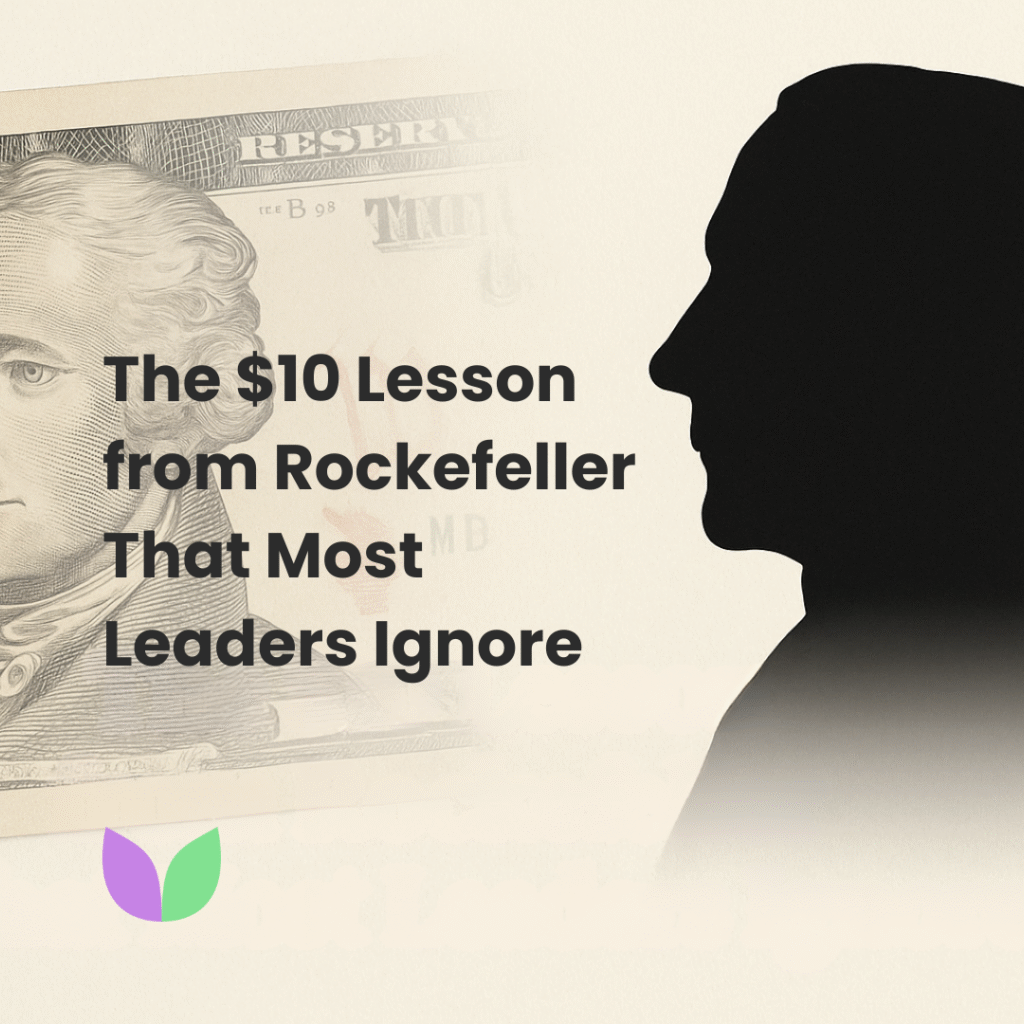The $10 Lesson from Rockefeller That Most Leaders Ignore
John D. Rockefeller, one of the richest men in history, once said:
“A man’s wealth must be determined by the relation of his desires and expenditures to his income. If he feels rich on $10 and has everything he desires, he really is rich.”
Think about that.
With unimaginable wealth, Rockefeller wasn’t measuring by net worth. He measured by contentment.
And yet, most executives and entrepreneurs today feel “poor” despite abundance:
- They raise funding but crave the next round.
- They hit revenue targets but still feel behind competitors.
- They buy time with wealth but spend it chasing more.
Here’s the paradox: wealth grows as desire shrinks.
The Psychology Behind It
Science backs Rockefeller’s wisdom:
- Hedonic Adaptation – We reset to baseline happiness after every win. Salary bump, promotion, even a jackpot—our satisfaction fades fast.
- The Easterlin Paradox – Beyond a certain point (roughly $75k annually, adjusted by region), more income doesn’t significantly boost happiness.
- Minimalism Research – Fewer choices and fewer wants reduce anxiety and sharpen decision-making.
Rockefeller understood instinctively: control your desires, and you control your wealth.
Practical Applications for Leaders
1. Audit Your Wants
List your top 5 “needs” this quarter.
Now strike off the ones driven by ego, vanity metrics, or comparison.
You’ll be surprised how much time and money you free up.
2. Redefine ROI Beyond Money
Ask: Did this buy me clarity, peace, or energy?
If not, the return is negative—no matter the dollar figure.
3. Set Your $10 Benchmark
Define the simplest version of “enough.”
Dinner with family? Debt-free business? Time to think without chaos?
Anchor to that moment.
4. Cut One Desire This Week
Cancel a subscription. Skip a vanity metric. Decline an unnecessary meeting.
Each cut is real wealth creation—because you’ve reduced dependence.
The Blunt Truth
We don’t need more. We need fewer cravings.
The leader who masters desire—not just revenue—scales faster, builds sharper, and sleeps better.
Want less. Operate better. That’s Rockefeller’s $10 lesson—proven by both history and science.
Reflection: What’s your $10 moment?
